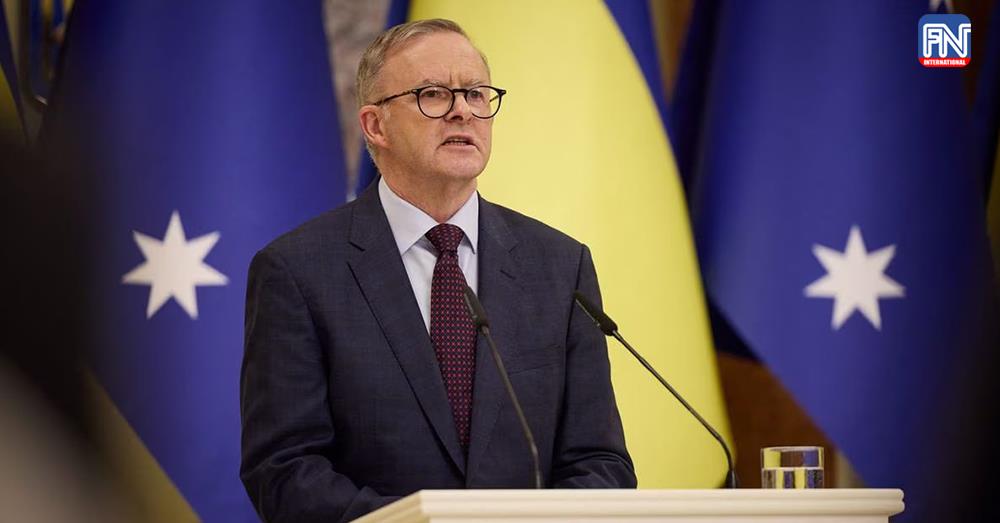SYDNEY, June 26 (Reuters) - The Australian government will provide a new A$110 million ($73.5 million) package to Ukraine including 70 military vehicles to defend against Russia's invasion, Prime Minister Anthony Albanese said on Monday.
The fresh commitments take Australia's total contribution for Ukraine to A$790 million, including A$610 million in military support, since the conflict began in February 2022.
"This additional support will make a real difference, helping the Ukrainian people who continue to show great courage in the face of Russia's illegal, unprovoked and immoral war," Albanese said during a media briefing in Canberra.
He said the package was not prompted by events in Russia over the weekend when heavily-armed Russian mercenaries briefly took control of the Russian city of Rostov, in one of the biggest challenges to President Vladimir Putin's grip on power.
"No, we have been working on this proposal, with a view to taking it to cabinet this morning, for some time," Albanese said.
Australia is one of the largest non-NATO contributors to the West's support for Ukraine and has been supplying aid, ammunition and defence equipment including scores of Bushmaster armoured vehicles. It has banned exports of alumina and aluminium ores, including bauxite, to Russia, and has sanctioned about 1,000 Russian individuals and entities.
To prop up Ukraine's economy and trade, Albanese said Australia will also extend duty-free access for goods imported from Ukraine for another 12 months.
The latest military assistance package will include 28 M113 armoured vehicles, 14 special operations vehicles, 28 medium trucks and 14 trailers.
Albanese said his government welcomed the Australian high court's decision to dismiss a challenge by Russia to prevent the federal government to take control of land leased to build a new embassy near the parliament house in Canberra.
"We expect the Russian Federation to act in accordance with the court's ruling," he said.
Australia on June 15 canceled Russia's lease to build a new embassy citing national security, drawing criticism from Kremlin which said the move by Canberra reflected its anti-Russian sentiment.
